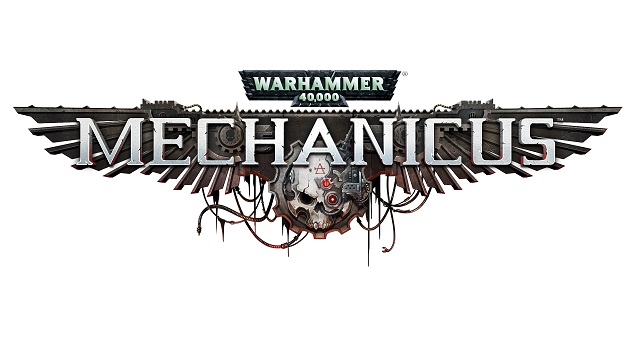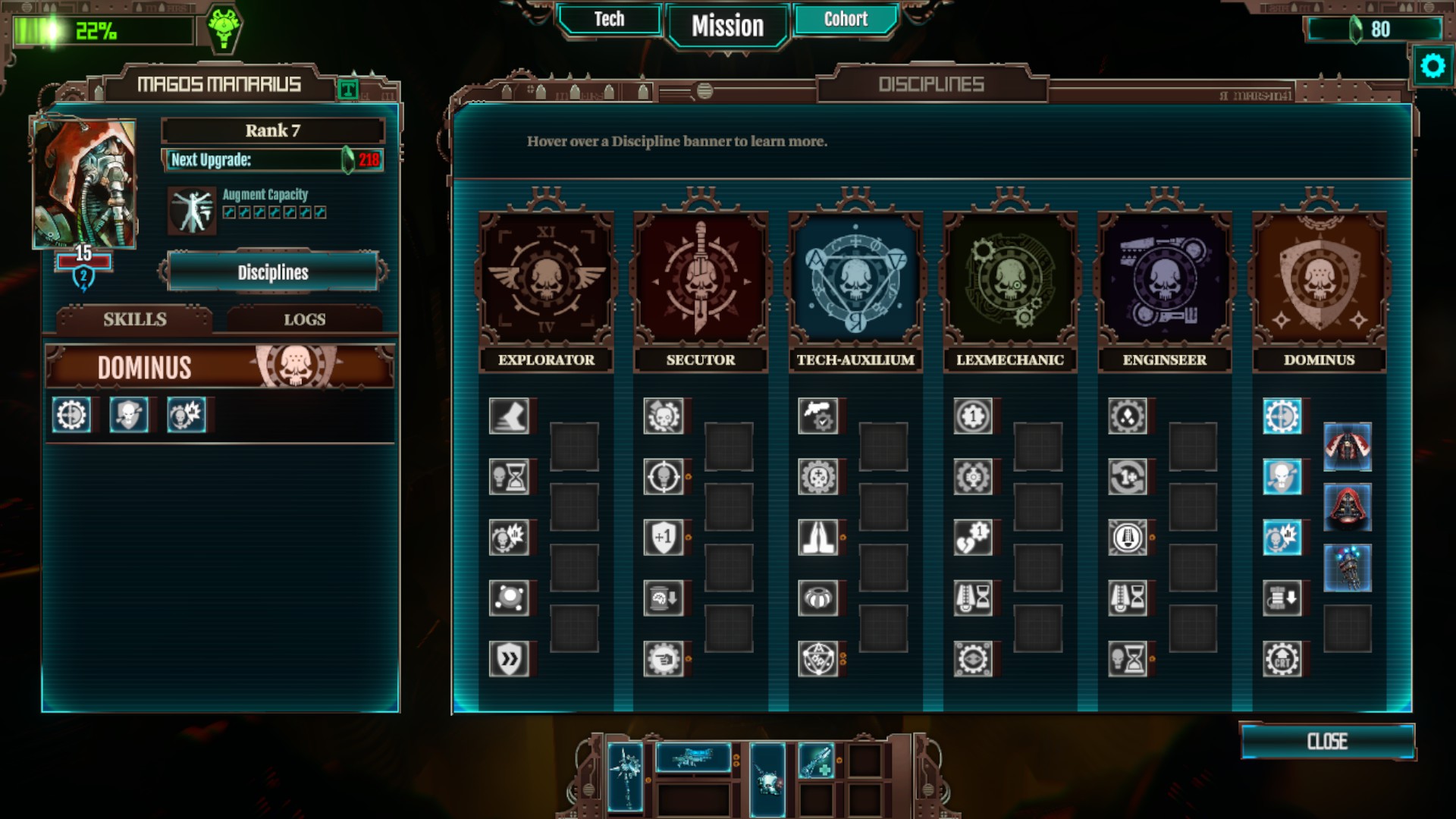Warhammer, both fantasy and 40,000, has deep roots in tabletop miniatures gaming, moving pieces around a makeshift graph paper board and engaging various rules and random number generators to determine hits, misses, kills, and all that fun wargame stuff.
Warhammer 40K: Mechanicus captures that atmosphere brilliantly in a tightly-paced little turn-based tactics game that even manages to stir in some video game influences from games like FTL: Faster Than Light and XCOM.
But all the same, it’s also a game that unabashedly loves its Warhammer roots, and that is both the best and the worst thing about it; this game can be utterly impenetrable to people who aren’t deeply versed in the lore in the first place.
The game casts the player in the role of Magos Dominius Faustinius, part of the Adeptus Mechanicus, a faction of Mars-based mechanically augmented humans tasked with stewarding technology both lost in mankind’s past and found around the universe. These are the guys who, in 40K, build all that cool tech that you see in other, less obscure 40K licensed titles like the Dawn of War series.
The Adeptus finds itself on the planet of Silva Tenebris, home of a massive network of Necron tombs, and the whole thrust of the game is to raid those tombs through a series of both tactical battles and grand strategic decisions on how to get from one end of the tomb to the other in the fewest number of moves while still acquiring the largest volume of actual useful tech.
That’s where the FTL comparison shines through. Because you only get a limited number of turns to acquire all the weapons, augments, and power-ups you’ll need to beat the game’s collection of Necron bosses and their robotic minions, giant spiders, and “blasphemy against the Machine God” scattered into the world.
And you’ll notice there’s an ungodly amount of jargon here too. It’s entirely by design; this game is not in any way at all trying to be accessible to non-fans of not just the genre but of the specific lore the game is set in.
The writer, Ben Counter, is letting his geek flag fly here. Word is he’s read enough Warhammer 40K books to stock a library, and he’s chosen a totally obscure section of the 40K universe to mine for a unique experience.
These are not the hulking teenage-boy-power-fantasy space marines that usually infest the testosterone-poisoned lore of Warhammer 40K games.
And because the game is on a shoestring budget befitting its $30 price tag, there’s not the high production values that, say, Creative Assembly has brought to the Warhammer fantasy marque with the Total War series’ two separate takes on that franchise.
This game reminds me of nothing so much as a higher-res version of Fallout Tactics, and that’s a game from 2001 built on an engine from 1998.
But on the other hand, I ran it on a potato of a laptop that was midrange at best when I bought it in 2016 and it ran like a dream. The game insists its recommended system specs are higher than the minimum spec for 2015’s The Witcher 3, but do you really need ambient occlusion and fancy tech tricks for a barebones turn-based tactics game?
Spoiler: You don’t.
What continually amazed me during the time I spent with the game, apart from how utterly foreign it feels to someone with no familiarity with 40K‘s extended lore, is how utterly punishing this design truly is. This is a difficult game, as hair-pulling, anger-inducing, games-aren’t-supposed-to-be-this-hard-in-2018 an experience as you’re going to get from a game these days.
Enemies use flanking tactics. They “shoot and scoot”, outright requiring the player to understand how to outflank the enemy themselves. They target weakened player units in order to give the player no chance to heal those units between battles. And some enemies have the ability to teleport, and rather than that being just a gee-whiz, the AI can and will teleport one of its units in perfect position to shove a bolt of energy from a disintegration rifle right where the sun don’t shine.
On the other hand, the game does provide an impressive array of upgrades and power-ups that, in the hands of a smart strategic player, will turn a punishing game into…well, maybe not a cakewalk, but a much more manageable experience.
As with its tabletop roots, the game amply rewards the ambitious player willing to experiment, maybe do a little save scumming, and devise the best way to clean out each of the game’s mini-dungeons.
While it doesn’t out-XCOM the XCOM series in this regard, it’s also on a tiny fraction of the budget yet doesn’t shy away from the comparison.
The bottom line here is that Warhammer 40,000: Mechanicus gives you a game that, while you’ll enjoy it a whole lot more if you’re deeply immersed in the lore, is still one of the most competent turn-based tactical games to hit the PC in a long time. And because of that, I can give it a solid recommendation.
It’s intentionally impenetrable, and it’s certainly not for everyone, but it rewards the diligent player willing to embrace it.
[Note: The developer provided a copy of Warhammer 40,000: Mechanicus for the purpose of this review.]











Published: Nov 18, 2018 09:21 pm